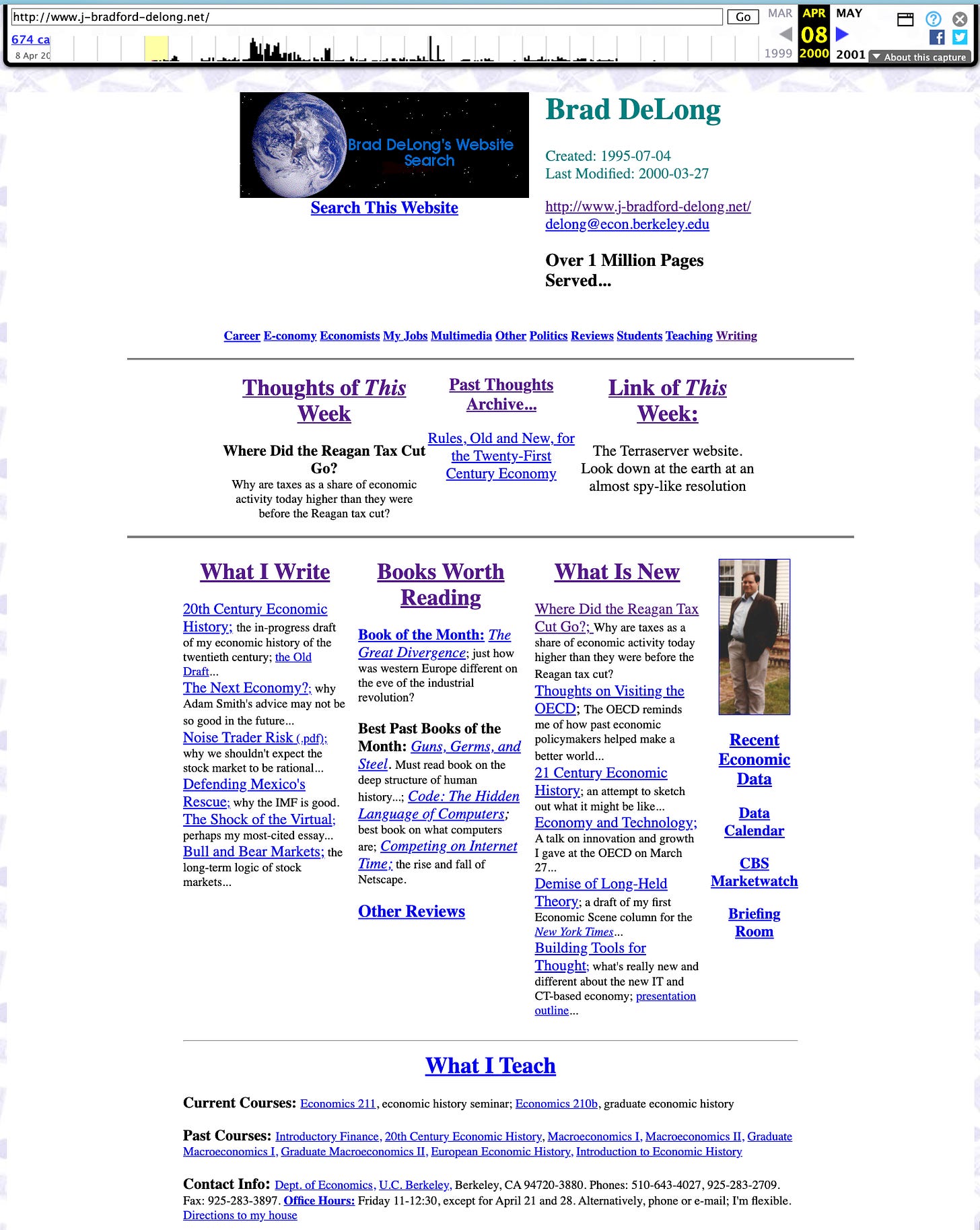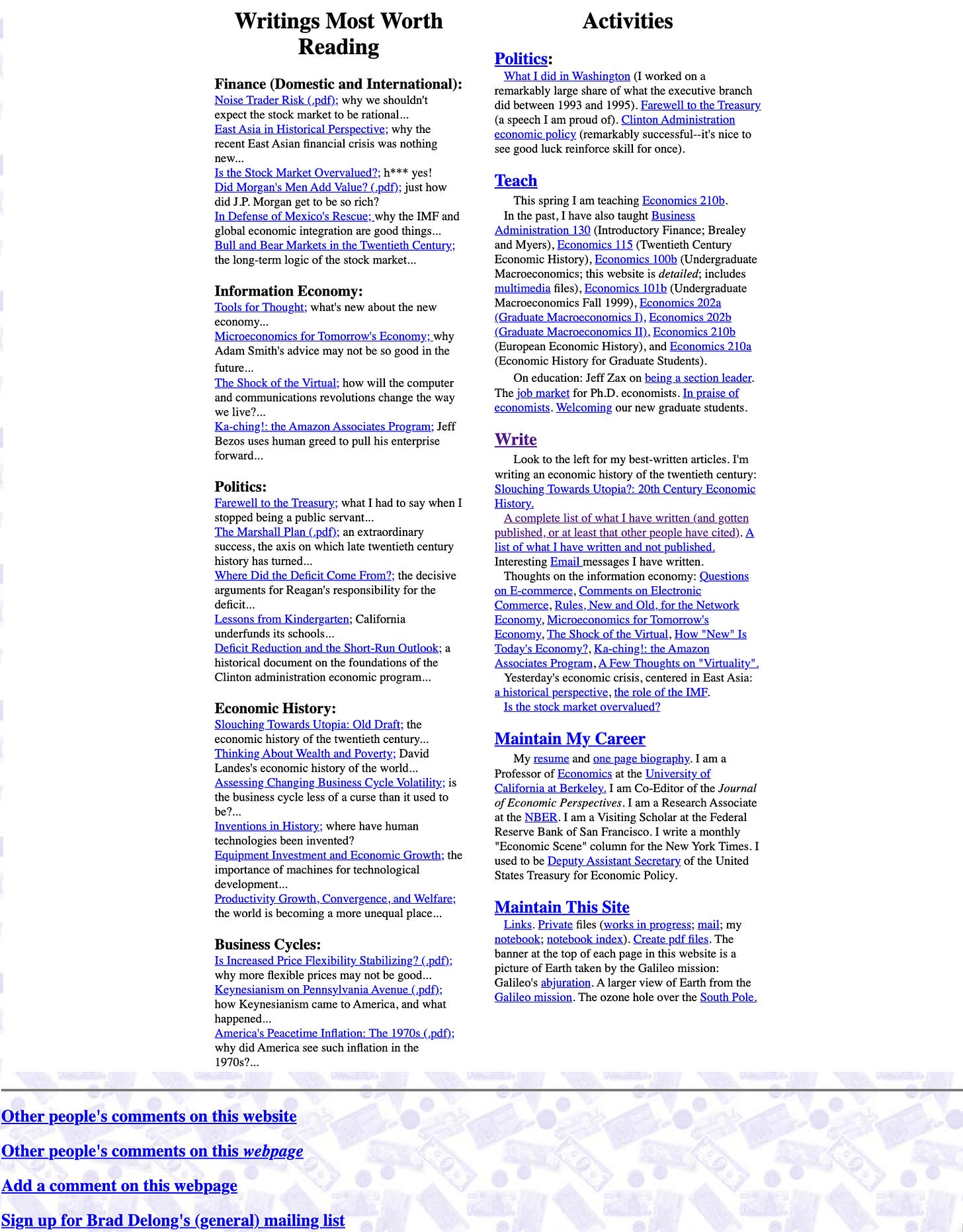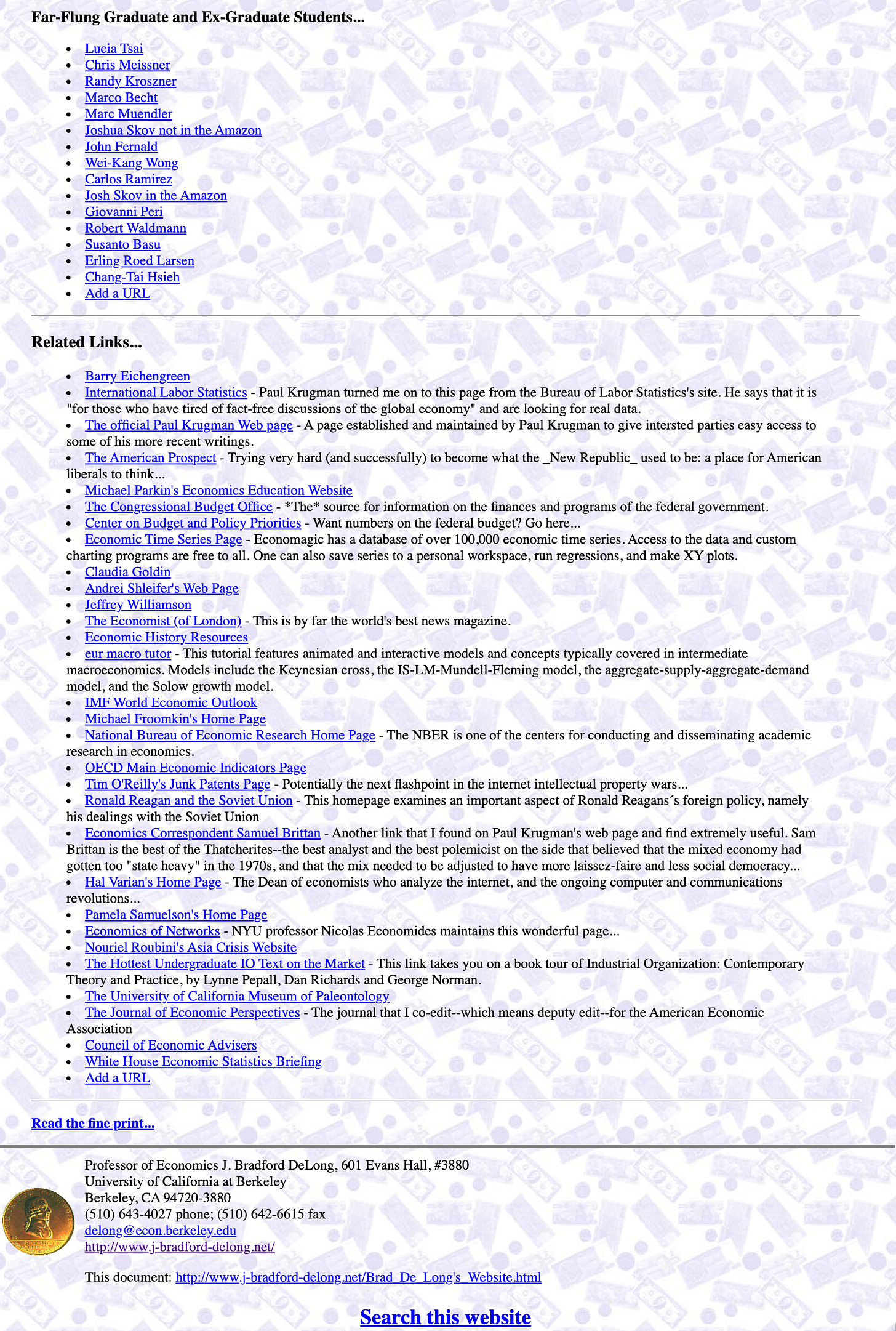It Was Twenty-Five Years Ago Last Tuesday...
That was not when Sgt. Pepper taught his band to play. But it was the first time that my proto-weblog was archived by the universal online virtual library of humanity. What did it then find?…
Twenty-five years ago last Tuesday, on April 8, 2020, the Wayback Machine <https://web.archive.org/> at the Internet Archive <https://archive.org/> did its first crawl of my proto-weblog <http://j-bradford-delong.net>:
<http://web.archive.org/web/20000408235436/http://www.j-bradford-delong.net/>:
The first thing that strikes me is the—very appealing, to me at least—information density: much more information per square screen inch than these days, when everything is designed for small-screen smartphones first, and for spreading-out to take advantage of high-resolution large-panel technology… never. This is a loss.
Why was I doing this back then?
Well, the story begins, as so many turn-of-the-century stories do, with more than a dash of techno-enthusiasm and an immense dammed-up sense of anger at what then struck me as the very poor state of the Habermasian public sphere that is one of the faces of humanity’s anthology intelligence. Back in 1995 I left my jobs as Deputy Assistant Secretary for Economic Policy at the U.S. Treasury Department for Berkeley. And I left thinking that I need to find a way to do better. Simply letting the media carry the message about economic policy choices and outcomes was grossly inadequate. Op-ed pages were narrow, gated, and often uncomprehending. Far too many journalists routinely got the economic story wrong, and were uncurious about getting it right—as if they knew that if they understood the issues, they would have to stop taking what many of their sources said at face value, and so they would have to work harder. (The most extreme example of this, BTW, was and remains Jonathan Weisman; “he’s young, he’s an English major, he’ll learn better”, his elders told me when I complained; never did). Moreover, they seemed to operate with a memory that went back maybe—maybe—a week.
It was a conversation with my sometime roommate Paul Mende—then physicist, now finance quant—that offered me a way forward. He told me, back in 1995, that physics had shifted its modes of internal scholarly communication from journals, preprints, and seminars to what he called the world-wide-web: a “website” at <http://arxiv.org>. He said that other disciplines were certain to follow—some rapidly, others more slowly. And that I should get ahead of the curve. The world-wide-web was, he told me, a technological tool that would reshape how intellectual work was done: “It’s not just a repository of working papers,” he insisted, “it’s a norm-shifting device. It changes the way the field thinks about visibility, priority, commentary, and dissemination.” That stuck with me. And I reflected on the appallingly low number of people who actually read the articles I had published in the “top five” economics journals.
“To get ahead of the curve”, Paul told me, “You should just start posting your stuff. All of it. Online. There’s no reason not to. And there’s every reason to.” That seemed to me to make sense.
So I decided I wasn’t going to wait for the New York Times to get the macro story right or for the Washington Post to quote someone sensibly accurately and in context, as one of the things that I would do with my time now that I was back in the university.
Flash forward three years. One evening I open my copy of the new issue of Foreign Affairs and find myself cited by both Paul Krugman and Jagdish Bhagwati—cited very favorably by Paul, and cited very unfavorably by Jagdish.
Both of these people were far above my pay grade. I was then desperate to be noticed by them and their ilk. Krugman was going to win a Nobel Prize in Economics, after all.
One citation favorable. One citation very unfavorable. At one point in the movie Pirates of the Caribbean, Lt. James Norrington says: “You've got a pistol with only one shot, a compass that doesn't point north... and no ship. You are without a doubt the worst pirate I have ever heard of!”.
And Captain Jack Sparrow responds: “Ah, but you have heard of me”.
They had heard of me. They were citing me.
But they were not citing anything I had written that had been printed and been published. The quotations were from the pre-editing drafts I had posted. They were citing from my website.
“Hmmm…”I thought.
I had a vision in my mind’s eye of both Paul and Jagdish frantically working away under deadline pressure at their PCs on their respective pieces for Foreign Affairs, Paul looking for something to buttress and support his argument, Jagdish looking for something he could straw-man and attack. And with no time to go to the library, both opening up a Netscape Navigator window to Altavista <https://en.wikipedia.org/wiki/AltaVista> and then grabbing a quote from what they found.
And so I doubled down. The proto-weblog as of April 8, 2000 was what resulted…
The next webcrawl by the Wayback Machine would come on May 20, 2000…




